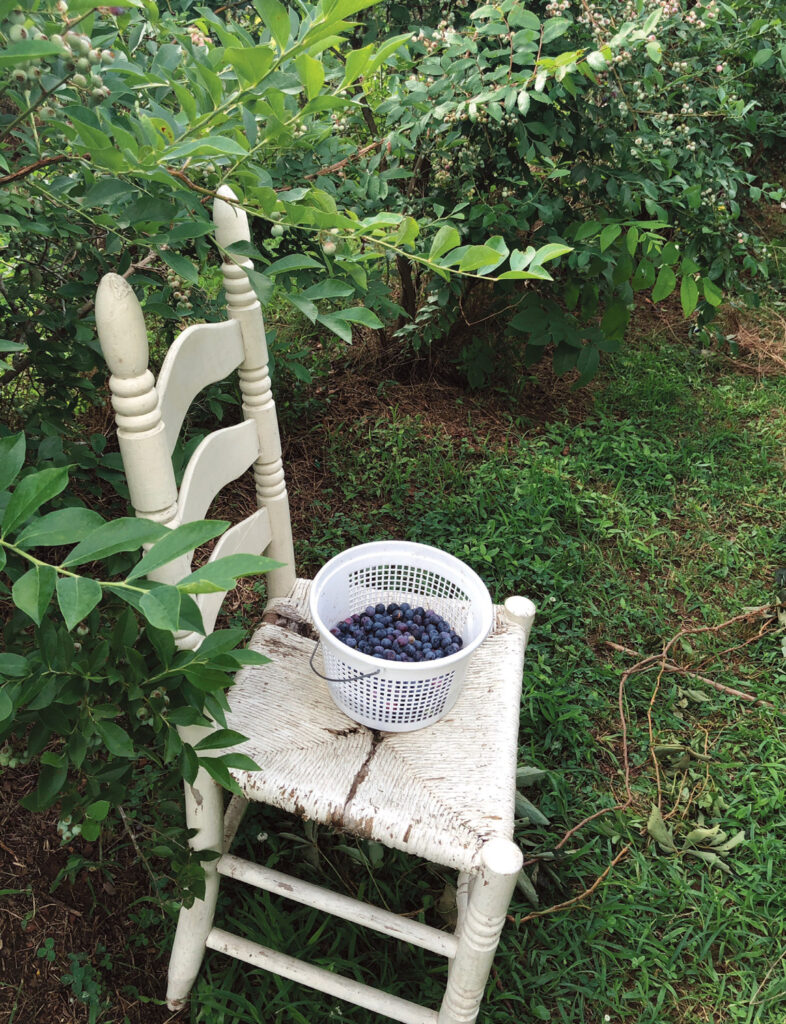Don’t drive too fast or you’ll miss Blue Honey Farm in Eagleville. We called to find it and were told “see the flag just past the cows? That’s us. We don’t have a sign yet.” Once up the drive way, you see a charming house, a barn, and a picnic table. No country store or signs, just Tony, the owner, to greet you and give you the lay of the land.
The Fosters have been raising blueberry bushes on their idyllic
Blue Honey Farm in Williamson County for the past 15 years. “The first bushes we planted died on us pretty quick,” Tony concedes, “but after a little trial and error and some research, we got the hang of it.” These days, some 750-800 bushes reside in tidy rows on the lush hillside farm with a beautiful view. It’s open to visitors during picking season, roughly mid-June through mid-August. They also grow strawberries, blackberries, loganberries, muscadine grapes, plums, and paw-paw fruit, which are tropical in nature and according to Tony, taste like a cross between a mango and a banana.
The Fosters encourage families to come out to the farm to pick their own and are happy to host field trips for various school groups. “It’s important for kids to see how things grow,” says Tony, who speaks with childlike intensity about his passion for growing berries, a hobby that sort of snuck up on him over the years. “Joy and I both work fulltime jobs,” he explains. (He’s a printmaker; she’s a nurse). “What started as a hobby has become a full-time job on top of a full-time job.” But he’s not complaining. And neither is Joy. Sitting at a picnic table under tall shady oaks, their two dogs lolling happily at their feet, the Fosters exude the sort of slow-paced, soft-spoken way of life so many small-time farmers seem to embrace. Talking to them one gets the sense that, like their berries, there’s really no need to rush. No need to cut corners, or inject their berries with harmful chemicals just to yield a bigger, plumper crop. “Why anyone would spray a blueberry is beyond me,” says Tony, explaining that the fruit is naturally pest-resistant, adding, “you could eat ours right off the bush.” Occasionally they have trouble with birds, but they’ve got a simple answer for that as well: “Plant more than the birds can eat.” Tony laughs, but Joy is quick to note the abundance of berries they are often left with by the end of summer. “We’ll pick until dark during blueberry season and still have gallons and gallons left for the winter.” And that’s after setting up at the Franklin farmers’ market every weekend and selling to popular restaurants in Nashville, including
Rolf and Daughters and
Dozen Bakery.